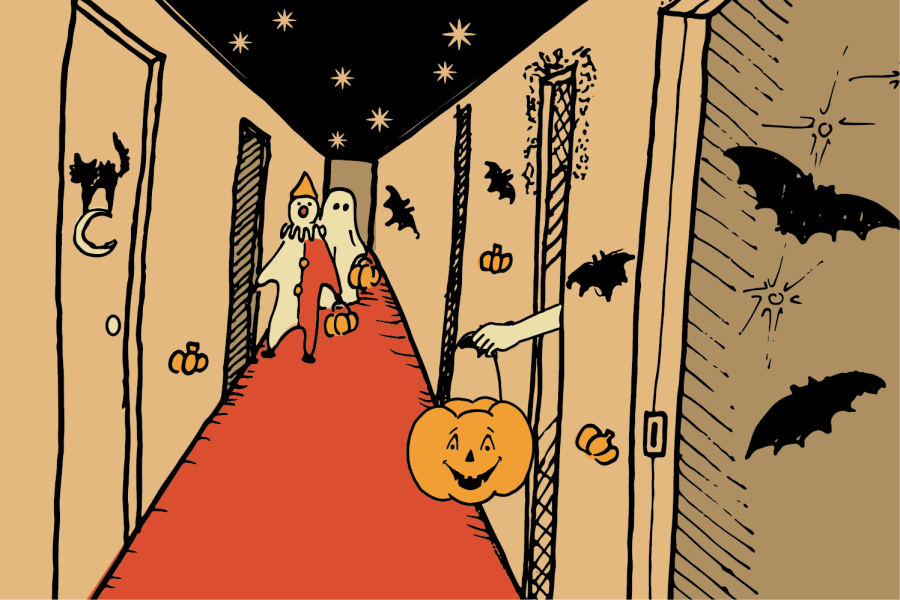We need to treat the trick-or-treating stigma
October 25, 2022
Everyone remembers the year trick-or-treating became lame.
Maybe it was the year your parents told you that you were too old to participate, or when you began awkwardly towering over the toddlers as you waited in line for candy.
Whether through choice or pressure, one year we all just gave in and stopped.
Unlike other holidays that have multi-generational appeal, Halloween is sub-categorized by age group.
On Oct. 31, kids roam neighborhoods in costumes, older people hand out candy and teenagers party. Society expects an awkward 180-degree switch forcing teens to grow out of the pumpkin bucket and into the keg.
But social norms shouldn’t be given the power to dictate the limits of innocent fun.
Trick-or-treating has always been my favorite aspect of Halloween. Coming from a relatively crunchy family, having a day of unlimited access to shitty candy was an opportunity I couldn’t pass up.
But I too, even as a trick-or-treat enthusiast, began to feel the awkward self-awareness that came with growing older. Although I still trick-or-treated well into my double-digits, it became harder every year to not succumb to societal pressure.
As I find myself now in college, I absolutely do not regret holding on to this scrap of childhood excitement for as long as I could. And honestly, I wish I still had the opportunity to don a costume and hit the streets.
This is why trick-or-treating should not be shut out of the college world.
One of the biggest hurdles college students face is the feeling of isolation. For many students, college is the first time they are navigating the treacherous road of adulthood without having an emotional safety net to rely on.
I propose trick-or-treating as a remedy to this struggle. It is an alternative to partying that provides a much-needed fix of nostalgia to homesick college students and a low-stress environment for students to get to know one another.
Childlike activities that involve collaboration and imagination have the ability to foster emotional connection, according to an Aug. 6, 2014 NPR article.
For college students who are having trouble getting to know their peers or who simply want a childhood fix, trick-or-treating could be just the cure.
Unfortunately, the autumnal activity is currently inaccessible to college students because mainstream college culture dictates that partying is the only option for having fun on Halloween.
Whether it is implicit or explicit, we’ve been enforcing a trick-or-treating stigma by collectively agreeing that there’s a cut-off date for childlike fun.
But, just as turning 18 doesn’t automatically give you the brain cells of a functioning adult, being in college doesn’t automatically mean trick-or-treating isn’t a good time. Imposed adulthood and societal stigma do not need to be the barrier between you and free candy.
So, given everything, why not try trick-or-treating in college?
It is not outside UVM’s ability to initiate on campus trick-or-treating. In fact, they already have their foot in the door. The Student Alumni Association will be hosting Candy Shoppe, a trick-or-treating table event in the Davis Center.
With just a little sponsored expansion, college trick-or-treating could definitely become a fun tradition at UVM—besides, other colleges have been doing it for a while.
Temple University hosts their yearly “Campus Trick-or-Treats” by marking offices that students can visit for candy, according to their website. Whether UVM follows a similar format through a planned cross-campus event or multiple isolated dorm operations, it could absolutely happen.
Or, if you simply feel like grinding your heels into trick-or-treating stigma without the backed support of an institution, go ahead and knock on a door this Halloween. Who knows, maybe you’ll be the last college kid to feel weird while doing it.
